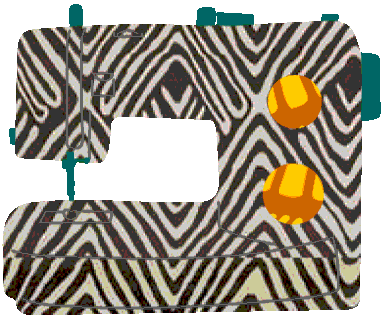Meeting Hortense Mbea, founder of the original Afropian fashion brand
Hortense Mbea has come to us with her inspiring story. Ever since launching her stylish brand this past December, she explains how she has tried to connect both Ethiopian and the rest of subsaharan African styles as in her opinion, they are often disconnected. Her lifestyle brand is based on her experience as an African that has lived in Ethiopia for many years and has given the company large amounts of dedication that we all know a start up needs. Today we share an exclusive interview with Hortense.
Would you mind telling us a bit about your background and why did you decide to be involved in the fashion industry?
I am an interpreter by trade. I am also a passionate Panafricanist, and have been fortunate enough to travel all over Africa and discover all the beauty in us. As an interpreter, I have taken part in crucial conferences that shaped Africa’s future. I have brought my modest contribution to building the continent. However, at some point, it wasn’t enough anymore. That is how I left my job, after many productive years, at the African Development Bank to pursue my personal projects, go back to freelancing and have more time for Afropian.
I am from Cameroon, was raised all over the world, and when I decided to move back to Africa, I moved to Ethiopia to join my father. It was quite the culture shock: this country had never been colonized, did not really look like the Africa I knew, had a different calendar (we are in 2010 here), clock (time is based on the sun, 6 a.m becomes 12 p.m), the food was different. But 15 years later, I call this country home.
Afropian came very naturally to me: it is my experience as an African in Ethiopia. There is still this myth that Ethiopians do not feel that they are African, because they look different and were never colonized by the West. Some Ethiopians will tell you Ethiopia is not Africa, but Abyssinia, and some Africans from other countries will tell you that Ethiopians are nothing like us. Afropian dispels this myth. It is a “bridge” between Ethiopia and the rest of Africa. I chose to establish a high-end accessories and home design brand to showcase all the beauty of Africa, and contribute to giving an alternative to the “single story”.
What is your achievement until today that you are most proud of and why?
I worked on the idea of Afropian for a bit over a year. During that period, I met many artisans and established a network of suppliers. I am extremely proud to give work to the two most vulnerable groups of the African population: women and youths. In particular, I work with a cooperative of Ethiopian female weavers who used to be “donkey women”, i.e they used to carry heavy loads of eucalyptus wood on their backs, from the hills surrounding Addis Ababa, to the city markets. These women were exposed to all sorts of dangers, including the risk of being eaten by hyenas in the forest while cutting wood. The group I work with has been trained by an NGO and now these ladies spin their yarn, dye it and weave it into beautiful Gabi, this luxurious, warm and soft cotton cloth. I also work with women Bogolan weavers in Mali and a group of youths who make organic Bogolan, in Mali as well.
Afropian is only getting started, and we have very exciting plans for the future. We want to train our artisans, help them become better business managers and increase their visibility. We are currently working on a training exchange between our West African and Ethiopian artisans, aiming at cross-fertilization. I am also pretty happy that I am the first to connect Ethiopia and the rest of Africa, at so many different levels.
As a person running a business, what are some skills or attributes that you have found to be indispensable?
First, patience and adaptability. And always having a Plan B. Suppliers are human and sometimes they cannot deliver as per your deadline or specifications, so always have a back up.
Then, staying ahead of the pack. Because the uninspired ones will copy you, no matter what you do, you must always be a few steps ahead. As a creative, I think copycats can be very stimulating, as one must constantly innovate to remain a leader and trailblazer.
What do you think of the current state of the African Fashion Industry?
I think these are very exciting times! We are now showcasing our rich African talent at our own local fashion weeks: Johannesburg, Accra, Addis Ababa. We are creating our own platforms, on our own terms, to make our fashion voices heard. Recently, Rwanda has banned the importing of second-hand clothing and other African countries are following suite: I see this as an opportunity for local designers to reclaim local markets. Exciting times, indeed!
From your point of view, how do you see the “Fashionomics Africa” involvement?
I think a central platform such as Fashionomics will be very useful to connect all of the actors in the fashion industry. Information about the industry being pretty scattered around. I also hope it will create opportunities for much needed training, exchanges and funding.
Check out her styles:
